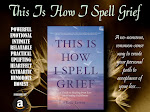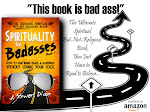On Honest Fame: Interview with Historical Fiction Author M.M. Bennetts
 Educated at Boston University and St Andrews, M.M. Bennetts is a specialist in the economic, social and military history of Napoleonic Europe. The author is a keen cross-country and dressage rider, as well as an accomplished pianist, regularly performing music of the era as both a soloist and accompanist. Bennetts is a long-standing book critic for The Christian Science Monitor.
Educated at Boston University and St Andrews, M.M. Bennetts is a specialist in the economic, social and military history of Napoleonic Europe. The author is a keen cross-country and dressage rider, as well as an accomplished pianist, regularly performing music of the era as both a soloist and accompanist. Bennetts is a long-standing book critic for The Christian Science Monitor. The author is married and lives in England.
Bennetts’ latest book is Of Honest Fame.
You can visit the author’s website at www.mmbennetts.com.
Q: Welcome to The Writer's Life, MM. Can you tell us how long you’ve been writing and how your journey led to writing your latest book, Of Honest Fame?
I’ve been writing since at least the late Eighties when I began free-lancing for The Christian Science Monitor as a book critic. But I had always been fascinated, even—or especially—as a child, by old portraits, and I used to stand and look at them and wonder what their lives had been like? What they had been like as people? What did they see? What did they experience? What had they cared for? What did it feel like to be them?
I had always wanted, I think, to write a novel about spies. So inevitably as I was working on my first book, and as the research which had at that point been mainly focused on the social and political history of England in the early nineteenth century, that led to a fascination with the workings of the Foreign Office and its involvement in the Peninsular Campaign—and then, a number of books examining the roles played by espionage in the Napoleonic wars were published, all of which grew into the book that Of Honest Fame is now.
Q: I love your title…can you tell us why you chose it?
Thank you. It’s a line from a poem by Lord Byron: “The drying up a single tear has more/Of honest fame than shedding seas of gore.”
When I first came across it, it struck me as such a remarkable statement, especially given that it was written sometime in 1815 or 1816, when all of Europe was still suffering the devastating after-effects of more than twenty years of continuous war against Napoleon and the French. And therefore most apt, both for the novel, which is about British spies working against Napoleon and the French in 1812-1813, but also for some of the ideas I wanted to explore in it.
Q: Why did you believe your book should be published?
Well, I think for far too long the world has swallowed the disinformation put out by the Napoleonic spin machine, which turned him into some kind of national French saint and icon of French liberty, and he was anything but. The France he created was a military dictatorship and through his endless wars, he caused the deaths of more than five million people. That’s the recorded number. And I wanted to write about the unrecorded deaths, those of the civilian population, and honor those who had fallen but had never even been counted.
Q: We all know that publishers can’t do all of the publicity and that some lies on the author. What has your publisher done so far to publicize the book and what have you done?
My publisher has been tremendous in setting up signings and a couple of launches in the UK, where I live, as well as arranging talks about historical events like the assassination of Prime Minister Perceval in 1812. They’ve also got me involved in a project called The Power of Language (www.poweroflanguage.net), about which I feel most passionately. And I also have been keeping a blog for more than a year, about writing, research, bits of historical trivia…
Q: What book on the market can it compare to? How is it different? What makes your book special?
Well, insofar as it’s set during the Napoleonic wars, one might compare it to any of Cornwell’s Sharpe novels or the novels of Patrick O’Brian. Unlike those works though, it’s wholly about espionage, though there’s still all the action and derring-do, but the action is woven through the fabric of history, so that I would hope the reader feels they have been in the room, or travelled across Europe at the time and seen for themselves what it was like.
Q: Open to a random page in your book. Can you tell us what is happening?
I’ve opened to page 124…which is the opening of a chapter in which Boy Tirrell is beginning his trek across northern Germany in the wake of Napoleon’s Grande Armée on their way to invade Russia and describing the ruination of the countryside and the dangers of being taken there alive.
Q: Do you plan subsequent books?
I do, yes. One afternoon a few years ago, when I was visiting the Louvre in Paris, I noticed these two rather fine Renaissance paintings on this one wall. They were fresci--meaning, they’d been originally painted on the walls of someone’s house or church. And I thought, “When the French armies were pillaging and sacking Italy in the late 18th century and early 19th centuries, they even ripped the paintings out of people’s walls? Crikey!” And I knew then that I had to write something that took in what happened to Italy during this period--it was a time of tremendous upheaval and poverty there, all of it caused by Napoleon--and that side of things has all but been forgotten. So the next book starts in Italy in 1813.
Q: Thank you for your interview, MM. Do you have any final words?
Only that it’s been a great pleasure to talk about some of these ideas, and thank you very much for having me.









































































































































































An excellent and intelligent writer dealing with a period of striking interest. This interview has filled in a lot of background for me, and made me even more interested in reading Mm's other books.
ReplyDeleteGerry McCullough
Thank you for an interesting interview. Your readers may be interested to see a review that just went up at another 'Pump Up Your Book' tour stop - http://bit.ly/9dlSwU
ReplyDelete